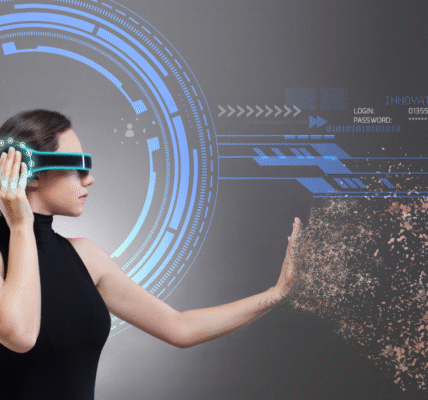In recent decades, advancements in technology have transformed the fabric of daily life, impacting how we communicate, work, and solve problems. The pace of innovation continues to accelerate, unveiling tools and concepts that once seemed confined to science fiction. From artificial intelligence to renewable energy, these breakthroughs are not only shaping industries but also redefining societal norms and opportunities.
This article explores several groundbreaking trends currently shaping the technological landscape and their potential implications for individuals, businesses, and communities worldwide.
Artificial Intelligence: Beyond Automation
Artificial intelligence (AI) has evolved far beyond simple automation tasks. Today’s AI systems can analyze vast amounts of data, recognize patterns, and even generate creative content. Machine learning, a subset of AI, allows computers to improve their performance without explicit programming by learning from experience.
Industries like healthcare benefit from AI through improved diagnostic tools and personalized treatment plans. In finance, AI helps detect fraud and optimize investment strategies. Meanwhile, creative sectors experiment with AI-driven art, music, and storytelling.
Despite these promising applications, ethical concerns such as bias, privacy, and job displacement remain important considerations. Responsible development and transparent use of AI are critical to ensure it serves humanity’s best interests.
The Rise of Quantum Computing
Quantum computing represents a significant leap in processing power, leveraging the principles of quantum mechanics to perform calculations far beyond the capability of classical computers. While still in developmental stages, quantum machines hold the potential to revolutionize fields such as cryptography, materials science, and complex simulations.
For example, drug discovery could accelerate dramatically by modeling molecular interactions with unprecedented accuracy. Likewise, optimization problems that stump current computers could find efficient solutions, impacting logistics, energy management, and beyond.
Though practical, widespread quantum computing remains a work in progress, ongoing research and investment highlight its transformative promise.
Sustainable Technologies and Green Innovation
Addressing climate change requires integrating technology with environmental stewardship. Innovations in renewable energy, such as solar and wind power, have made clean electricity more accessible and affordable.
Energy storage solutions, like advanced batteries, enable better management of intermittent renewable sources. Smart grids use digital communication to optimize electricity distribution, reducing waste.
In agriculture, precision farming employs sensors and data analytics to conserve resources and increase yields. Waste management benefits from technologies that enhance recycling and material recovery.
These advancements reflect a growing commitment to harmonizing progress with planetary health.
5G and the Internet of Things: Connectivity Everywhere
The rollout of 5G networks ushers in a new era of connectivity, offering faster speeds, lower latency, and greater device capacity. This infrastructure supports the expansion of the Internet of Things (IoT), where everyday objects—from home appliances to industrial machines—communicate and coordinate.
Smart homes adjust lighting and temperature automatically for comfort and efficiency. Cities implement IoT solutions to monitor traffic, pollution, and public safety. In manufacturing, connected devices enable predictive maintenance, minimizing downtime.
While these capabilities enhance convenience and productivity, ensuring security and privacy in this interconnected ecosystem remains a vital challenge.
Augmented and Virtual Reality: Blurring Boundaries
Augmented reality (AR) and virtual reality (VR) technologies are reshaping entertainment, education, and training. AR overlays digital information onto the physical world, enhancing real-time experiences. VR immerses users in fully virtual environments, enabling simulations that were previously impossible.
In education, these tools offer interactive lessons and hands-on practice. Healthcare professionals use VR for surgical training and therapy. Retailers employ AR to help customers visualize products before purchase.
The blending of digital and physical realms opens creative avenues and practical applications, expanding how we interact with information and environments.
Cybersecurity in a Connected Age
As reliance on digital systems grows, protecting data and infrastructure becomes increasingly critical. Cyber threats evolve continuously, targeting individuals, corporations, and governments.
Emerging strategies incorporate AI to detect anomalies and respond swiftly to attacks. Multi-factor authentication and encryption bolster defenses against unauthorized access.
Building a culture of security awareness among users complements technical measures. Collaboration between stakeholders, including policymakers, industry leaders, and security experts, is essential to safeguard the digital future.
The Ethical Landscape: Navigating New Frontiers
Innovation often outpaces regulation and ethical frameworks. Questions around data ownership, consent, and the societal impact of emerging technologies demand careful consideration.
Transparent algorithms, fair access, and inclusivity must guide development. Encouraging public dialogue and interdisciplinary collaboration helps align technological progress with shared human values.
Preparing for Tomorrow: Adaptation and Lifelong Learning
The rapid evolution of technology underscores the importance of adaptability. Skills once sufficient may become obsolete, while new competencies emerge.
Emphasizing lifelong learning, critical thinking, and digital literacy prepares individuals to thrive in dynamic environments. Organizations that foster innovation and flexibility position themselves for sustained success.
Conclusion
The technological horizon is rich with possibilities that promise to enhance many aspects of life. Embracing these changes thoughtfully allows societies to harness benefits while addressing challenges responsibly.
As tools become more powerful and integrated, the choices made today will shape the experience of generations to come. Staying informed, engaged, and ethical in the face of this transformation is vital to building a future that uplifts everyone.


